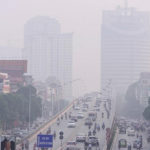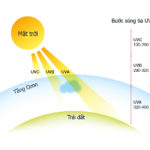Specifically, exposure to air pollution increases the risk of insulin resistance, leading to type 2 diabetes.
A study of nearly 3,000 people by Professor Annette Peters’ research team at the center found that individuals with impaired glucose metabolism, or early signs of diabetes, are more likely to develop diabetes if they live in a polluted environment.

related news
Best fruits for people with diabetes
Fruits are good for everyone, but it is important to choose the right ones if you have diabetes, as some fruits can increase blood sugar levels.
The study was published in the Diabetes journal.
You may also like
Delhi Launches Applications to Monitor Air Pollution
Bach Khoa GREEN is raising awareness of the concerning levels of air pollution present in Ho Chi Minh City and Hanoi, the two biggest cities of our country. To help in protecting the health of individuals and their families, the organization is introducing different applications dedicated for monitoring air pollution.





































